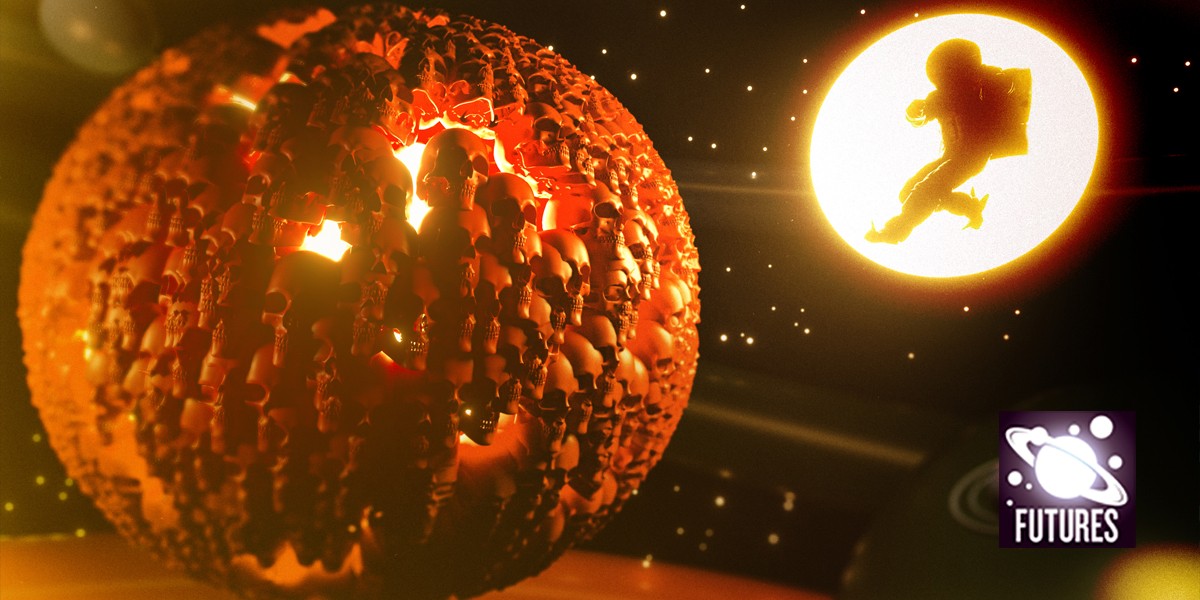Unicorn slippers in space

Avoidance tactics
To me, Dad was just Dad. But in the galactic sciences field, he was a king after discovering the brainwave link to somatic space travel.
Me? I’m good at things, too. Like running away.
Rubbing at a night’s worth of stubble, I shuffle to the hatch and slip my feet into unicorn slippers — because if you don’t have unicorn slippers on your spaceship, are you even doing life right?
On my console, I see Rose calling. I’ll call her back later.
Sliding open the hatch, I squint as a star’s rays hit me. Pink and green light warms my bare ankles. Instead of looking directly at it, I focus on the star’s glow reflecting off my slippers. My eyes glitter with the brain-fireworks of looking at something so bright. Beautiful, yes, but let’s not wax poetical before coffee. I avoid looking at the one non-glowing thing: Blue Terra. In three hours, I’ll dock, log in at the Bureau for my nine-to-five and hang space up on a hook.
And see Mom.
Can’t think about that. I wander to the upper-deck garden pool, kick my feet in the water and run my fingers through poolside violets.
Even though it’s only me here, my ship is vast. Rooms upon rooms, decks upon decks. Cargo holds, rocket boosters, booster rockets, rockety rockets. A veritable Seussian limerick of a ship.
My STV — Somatic Transportation Vehicle.
Humans tried forever to get to space. They succeeded long ago in clunky metal hunks that vomited them to the stars. You want to visit actual freaking stars in a bucket of bolts? Kinda kills the mood.
The solution, Dad found, was within us. He loved psychology, specifically the interface between thoughts and physical reactions: somatic responses. From there, it was a hop, skip and a galaxy jump to flying through space using only a spacesuit and your mental capacity.
Travelling spaceships are … people.
In my head are pools and unicorn slippers. In reality, a simple spacesuit lets me swim through space-deadlies, backstroke in style. And honey, you should see me in a swim cap.
When swimming in my mind-pool doesn’t erase thoughts of my downsized family, I call Rose back.
She answers swearing, top-knot bobbing like an angry tribble. That girl’s a sailor in a spacesuit. Her visual cognitive surroundings are turned off, so to me she’s just a girl floating through space, asking me why I ghosted her.
“Wait.” I see the reflection of her hands moving. “Are you knitting?”
She shrugs. “I need a new sweater before winter.”
I raise a brow. Our suits regulate any desired temperature, but Rose likes to experience the seasons. It’s up a degree or five in summer and down to about 18 cels in winter per the Northern Terrestrial calendar. I admire her commitment to tradition.
“I’m about to dock at Blue Terra,” I say.
Her fingers go still.
I see her worry, but I’m a pro at avoidance, so I scroll through a sensory playlist on my wrist controls. It starts with Beyoncé and wafts of banana bread. I pixelate the song and scent through receptors so Rose can experience the same thing. It’s the way we talk without talking.
I tap the up-arrow on the banana bread scent as I slide past the planet Kranio Five. Rose purses her lips; she doesn’t approve of my avoidance tactics. Well, I don’t approve of her ambivalence to the smell of banana bread.
Rose was there for me, in cadet school, when it all happened with Dad. His big discovery in space travel, then cancer discovering, devouring him before he himself could even kiss the opposite side of the sky.
Ever since then, for me, life on solid ground feels like dying. But I owe it to Mom to go home.
Rose says the things friends are supposed to say, and makes me promise to call her when I get home. Then she sends me some K-Pop and the smell of petrichor. We end the call.
Enjoying our latest content?
Login or create an account to continue
- Access the most recent journalism from Nature's award-winning team
- Explore the latest features & opinion covering groundbreaking research
or
Sign in or create an account Continue with Google
Continue with Google
doi: https://doi.org/10.1038/d41586-025-00950-2
This story originally appeared on: Nature - Author:Katie Cervenec














